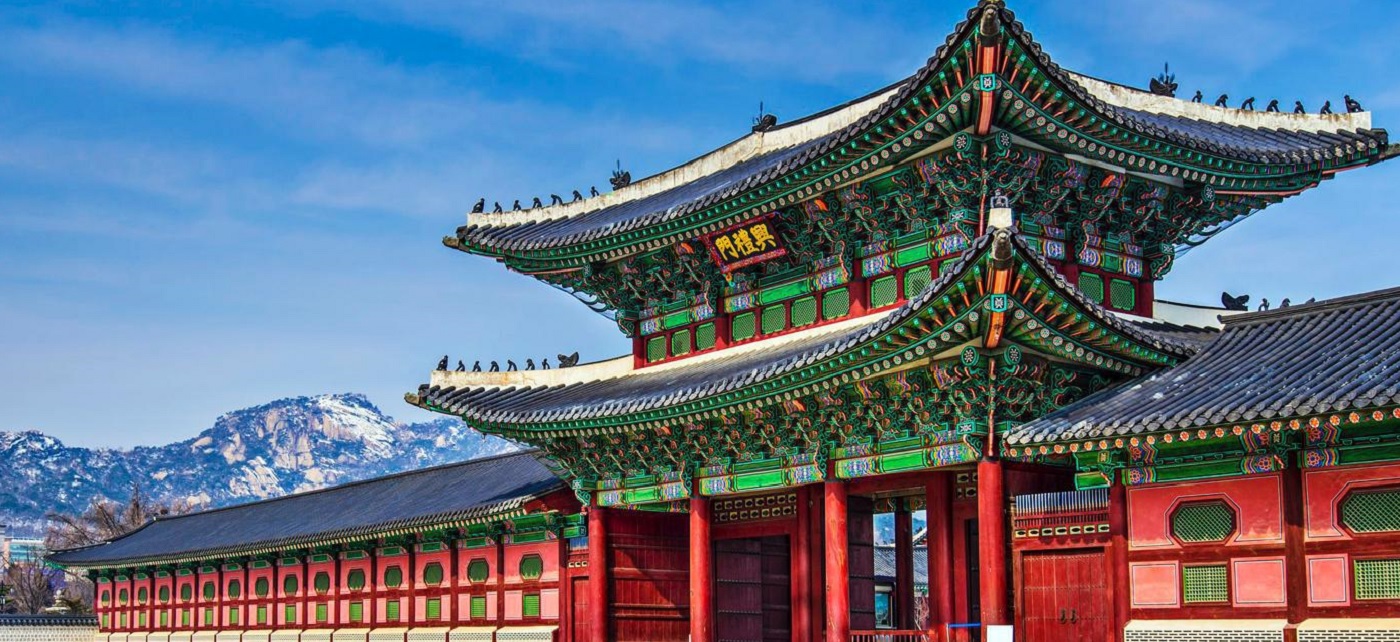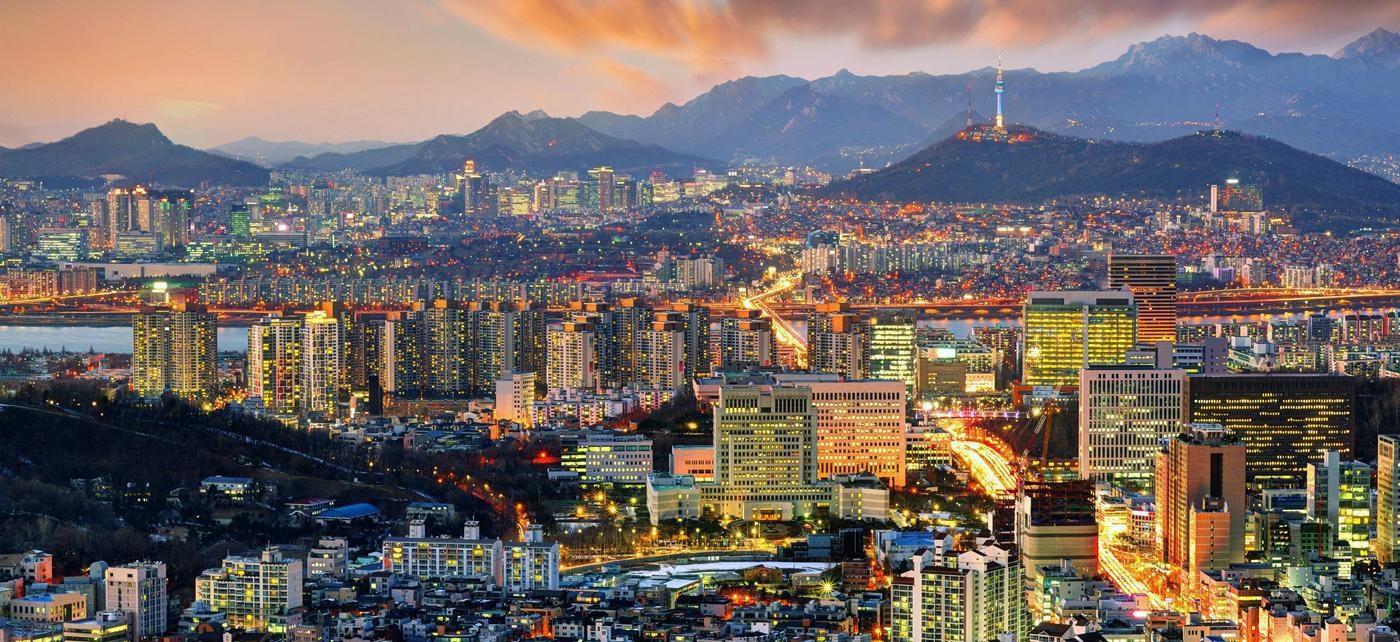South Korea, officially the Republic of Korea, is a sovereign state in East Asia, located on the southern portion of the Korean Peninsula. It is neighbored by the People's Republic of China (Mainland China) to the west, Japan to the east, North Korea to the north, and the East China Sea and Republic of China (Taiwan) to the south. South Korea lies in a humid continental and humid subtropical climate region with a predominantly mountainous terrain. Its territory covers a total area of 99,392 square kilometers and has a population of almost 50 million. The capital and largest city is Seoul, with a population of 10,421,782.
Archaeological findings show that the Korean Peninsula was occupied by the Lower Paleolithic period. Korean history begins with the founding of Gojoseon in 2333 BC by the legendary Dan-gun. Following the unification of the Three Kingdoms of Korea under Silla 668 AD, Korea went through the Goryeo Dynasty and Joseon Dynasty as one nation until the end of the Korean Empire in 1910, when Korea was annexed by Japan. After liberation and occupation by Soviet and U.S. forces at the end of World War II, the nation was divided into North and South Korea. The latter was established in 1948 as a democracy, though political turmoil, and periods of military rule and martial law, was to characterize much of the period until the foundation of the Sixth Republic in 1987.
After the invasion of South Korea by forces from the North on 25 June 1950, the resulting war between the two Koreas ended with an Armistice Agreement, but the border between the two nations is the most heavily fortified in the world. After the war, the South Korean economy grew significantly and the country had transformed into a major economy, a full democracy, and a regional power in East Asia.
South Korea is a presidential republic consisting of sixteen administrative divisions and is a developed country with a very high standard of living. It is Asia's fourth largest economy and the world's 15th (nominal) or 12th (purchasing power parity) largest economy. The economy is export-driven, with production focusing on electronics, automobiles, ships, machinery, petrochemicals and robotics. South Korea is a member of the United Nations, WTO, OECD and G-20 major economies. It is also a founding member of APEC and the East Asia Summit.
Education in South Korea is regarded as crucial to financial and social success, and competition is consequently fierce, with many participating in intense outside tutoring to supplement classes. In the 2006 results of the OECD Programme for International Student Assessment, South Korea came first in problem solving, third in mathematics and seventh in science. South Korea's education system is technologically advanced and it is the world's first country to bring high-speed fibre-optic broadband internet access to every primary and secondary school nation-wide. Using this infrastructure, the country has developed the first Digital Textbooks in the world, which will be distributed for free to every primary and secondary school nation-wide by 2013.
In addition to domestic consumption, South Korean mainstream culture, including televised drama, films, and popular music, also generates significant exports to various parts of the world. This phenomenon, often called "Hallyu" or the "Korean Wave", has swept many countries in Asia and other parts of the world. Until the 1990s, trot and ballads dominated Korean popular music. The emergence of the rap group Seo Taiji and Boys in 1992 marked a turning point for Korean popular music, also known as K-Pop, as the group incorporated elements of popular musical genres of rap, rock, and techno into its music.


